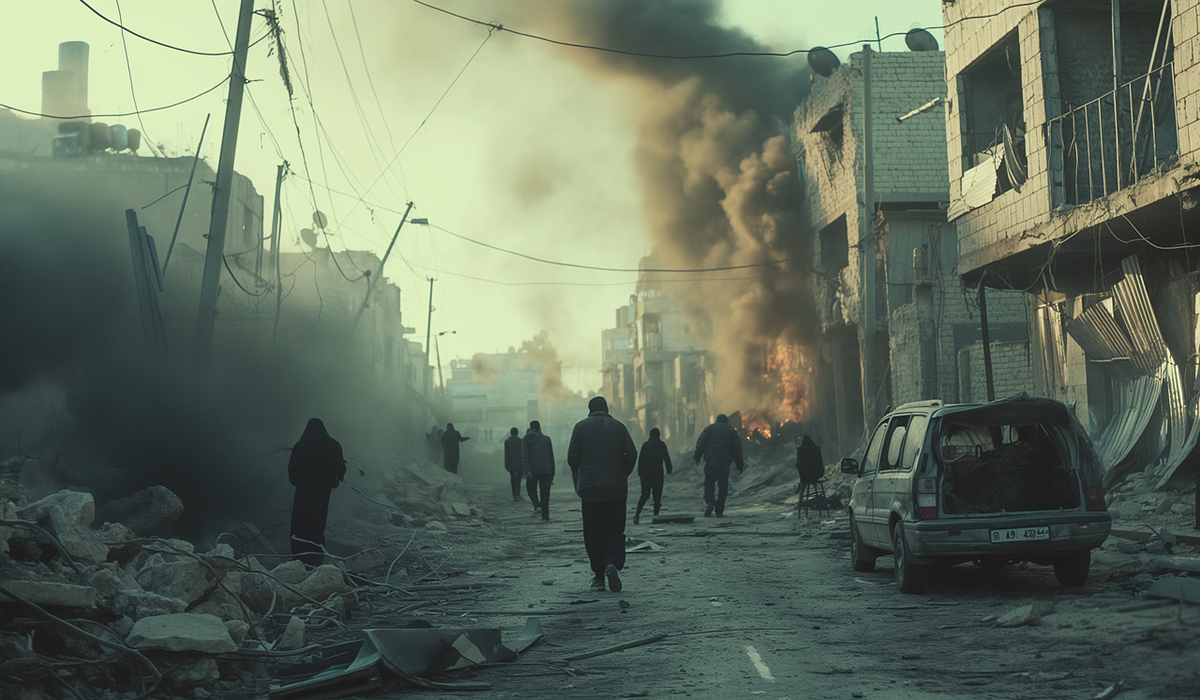A Tale of Two Wars: How Muslim Lives in Gaza Are Treated Differently than Lives in Ukraine
- TDS News
- Trending
- Middle East
- November 1, 2024

In times of war, the unequal valuation of human lives becomes starkly visible, and perhaps nowhere more so than in the wars between Ukraine and Russia, and between Israel and Palestine. Across these conflicts, there’s one unmistakable constant: the influence of the United States. In both wars, the response from the U.S. and other Western powers reveals a disparity in how they value certain lives and how they respond to similar acts of violence, leaving many questioning the principles behind their actions.
When Russia invaded Ukraine, the United States, Canada, the United Nations, and numerous other countries moved swiftly. Words like “ethnic cleansing,” “genocide,” and “atrocity” filled the airwaves as news outlets, government officials, and international bodies condemned Russia’s actions. Calls for justice were immediate and sanctions followed in unprecedented waves, reflecting an uncompromising moral stance.
In contrast, the conflict in Gaza tells a different story. Israel’s actions against Palestinian civilians — involving over 500 documented incidents of bombings, destruction, and loss of life — have not met the same level of definitive international condemnation. When pressed, the U.S. State Department’s Matt Miller explains that these incidents require “complex” investigations and that legal questions must be resolved before conclusions are drawn. At the same time, the U.S. has been quick to condemn any acts of violence by Hamas or other groups against Israel as violations of international law, leaving observers wondering why such immediate conclusions cannot be applied to Israel’s actions in Gaza.
The pain of any lost life — Palestinian, Israeli, Ukrainian, Russian, American, or otherwise — deserves equal outrage. No life should be sacrificed to the chaos of war. However, the U.S. response highlights a stark dichotomy. While professing a commitment to peace, the U.S. has continued to support Israel through arms sales, military aid, and political cover, just as it has provided arms and support to Ukraine. The investigation process into alleged Israeli violations, lacking any specific timeline, suggests that accountability may ultimately never come. With each change in administration, such investigations often fade, leaving the world to wonder if justice will ever be served.
If the U.S. truly stands for peace, it holds enormous power to end conflicts. The same goes for NATO in the case of Ukraine. NATO’s decision to expand eastward has escalated tensions with Russia, a factor that likely contributed to the conflict. As NATO now considers expanding into Asia, and even the Middle East, where it has established operational bases, questions arise about the true motives behind these moves.
Yet, the human toll remains the most tragic common thread. For years, the Western world has watched as entire civilizations have been reduced to ruins. In places like Gaza, Syria, and Lebanon, lives have been lost in horrific numbers, often receiving minimal attention from the same powers that so passionately support Ukraine. The Arab and Muslim communities suffering in these regions are too often overlooked, as though their lives matter less in the eyes of the international community. While no one advocates the loss of any life, whether Israeli or Palestinian, the world cannot ignore the devastation in Gaza and other conflict zones in the Middle East. History will remember this indifference as one of humanity’s greatest failings.
We might aspire to be better, to build a world that values every human life equally. But as long as the United States and other influential nations continue to act with selective compassion, allowing some conflicts to rage unchecked while others receive immediate action, true peace will remain elusive. To be a society that values peace, all lives must indeed be valued equally!








